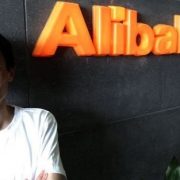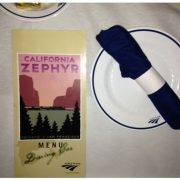The Rising Drumbeat for Alibaba
Rumors hit the market Friday that Sprint (S) will mount a $20 billion takeover bid for T-Mobile (TMUS) in early January. The news caused a late day kerfluffle on what would otherwise have been a slow December pre holiday Friday.
The Shares of both companies immediately jumped 10%, which left many analysts scratching their heads. Normally, the shares of the acquirer falls (they?re spending money), while those of the target rise (they are selling for a premium to the market).
Why do I care about a minor US phone company? Guess who owns Sprint? Softbank, which took over the company for $21.8 billion last July, and carries a hefty 20% weighting in my model-trading portfolio.
The move would make Softbank one of the three largest US carriers. That will automatically trigger an antitrust review by the Justice Department, which blocked a similar takeover attempt for giant AT&T (T) earlier. Look at how Eric Holder stood in the way of the American Airlines-US Air deal, which both firms clearly needed to survive. And this is in a country with 100 airlines. So any decision here could be a long wait.
I think this is just an opening shot in a long campaign that eventually leads up to the Alibaba IPO, expected to be one of the largest in history (the biggest was also from China, the $128 billion deal for the Industrial Bank of China in 2010). Expect to hear a lot about Softbank?s role in all of this in coming months. This should be good for its stock price.
As part of the build up, my old employer, the Financial Times of London, named Alibaba founder and CEO, Jack Ma, as its Person of the Year. The paper chronicles Ma?s rise for abject poverty in Hangzhou, China, where he was the son of impoverished traditional performers, to becoming one of the world?s richest men.
Ma was fascinated by the English language at an early age, and used to listen to my own broadcasts on BBC Radio to learn new words (another one of my former employers). After graduating in 1988, he earned $12 an hour as a teacher in China. While working for the Foreign Trade and International Cooperation, he escorted foreign visitors to the Great Wall. One of them turned out to be Jerry Yang, co founder of Yahoo.
Thus inspired, Ma went on to found Alibaba in 1999. Its initial strategy was to match up Chinese manufacturers with American customers, an approach that proved wildly successful. He then took on Ebay. In the following years the US e-commerce giant saw its Chinese market share plummet from 80% to 8%, most of that going to Alibaba. Today, Alibaba has 600 million registered users, and one day in November it clocked a staggering $6 billion in sales.
The FT estimates its current market value at $100 billion. To read the rest of the FT profile, please click here. Its IPO will be one of the preeminent investment events of 2014. Better to get in early.
Followers of my Trade Alert Service will notice that this is one of the few outright equity trades that I have done this year. This is a way for me to deleverage my exposure after a spectacular stock market run. Equity ownership ducks the time decay that plagues call options, and avoids the leverage inherent in call spreads.
If the stock is unchanged over the holidays, it won?t cost me a dime. One thing is for sure. When the Alibaba IPO is announced, it will be a surprise. The only way to participate is to get in indirectly through a minority owner now.
Don?t expect an allocation from your broker, unless they think it is going o fail.







